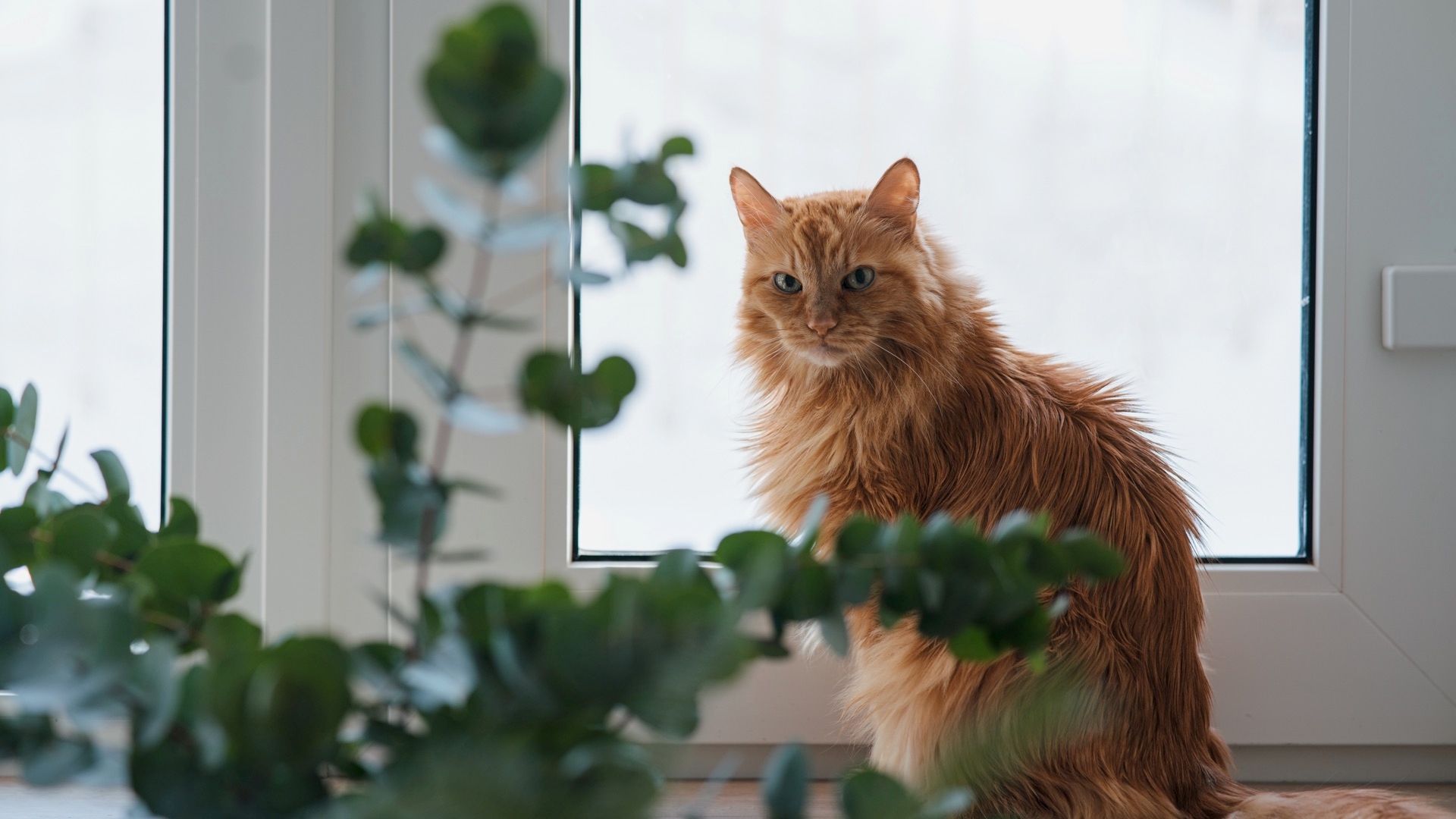The Aging Cat:
Summary:
A cat can live for twenty years or more but the average is probably closer to fifteen years. Signs of advancing years are decreased activity, gray hair, hearing loss, decaying teeth, lethargic movements, clouded eyes, bad breath, a craving for warmth, inactivity, and a demand for more attention.
A cat can live for twenty years or more but the average is probably closer to fifteen years. Signs of advancing years are decreased activity, gray hair, hearing loss, decaying teeth, lethargic movements, clouded eyes, bad breath, a craving for warmth, inactivity, and a demand for more attention.
There are some things you can do to make these advancing years more comfortable for your cat. It is especially important not to disrupt your cat's daily routine, for she clings to the security of her routine. If you must leave for a day or two, it is best not to board her. Ask someone to come into your house and take care of her. Provide a warm, snugly place for her to spend time.
An aging cat is very intolerant with an unclean litter box. Clean it daily for a happy cat. It is important to be patient and not scold your aging cat for occasionally having an accident. Defecation outside the litter box can be due to arthritis. Urination outside can be caused by a number of diseases. Incontinence can be taken care of with a pet diaper.
It is best to cut back on your aging cat's caloric intake. A diet with less fat will also help. There are maintenance diets for older cats available in several commercial brands. Watch for weight changes. An overweight cat is a sure candidate for an earlier than normal death. An underweight cat needs to be taken to the veterinarian for a check-up. The medical signs to look for in an unhealthy aging cat are: fatigue and weight loss, hyperactivity and weight loss, lameness or listlessness, coughing or heavy breathing, and excessive drinking and frequent urination. It is advisable to take your cat for regular check-ups when she approaches old-age.
Try to get your cat to move around each day. It will stimulate circulation, keep the joints flexible, perk up the appetite and digestion, and help make her alert and aware of her surroundings.
If your cat is in constant pain, is undergoing difficult and stressful medical treatments, is unresponsive to your affection, or is seemingly unaware of her surrounding, it might be time to do the loving thing and end her suffering. There are veterinarians who will come to your home, spend some time counseling you in an effort to ease your concern with the procedure and will even let you hold your friend until the end.
No matter what anyone tells you, intense grief over the loss of a pet is normal and natural. The loss of unconditional and non-judgmental love given to you by your beloved friend and companion can leave you devastated.
To help you through this period of grief, your veterinarian or a pet loss counselor might be helpful. I would highly recommend a book entitled "[Coping With Sorrow in the Loss of Your Pet](https://www.amazon.com/Coping-Sorrow-Loss-Your-Pet/dp/1508411468" by Moira Anderson.


